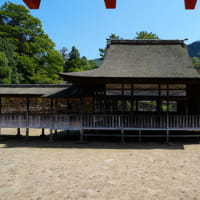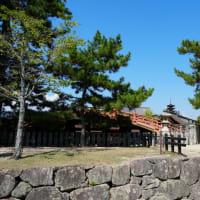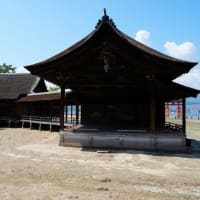I sent this chapter on 2019-05-27.
This chapter was ranked #1 on Ameba's hashtag ranking for #Hitotsubashi University.
We are delighted to hear your congratulations.
The following book is not only a must-read for all Japanese citizens but also people around the world.
It is full of facts that people who only subscribe to the Asahi Shimbun and watch NHK never knew...and were never told.
It is one of the best books on postwar Japan.
Mr. Shoichi Watabe is from Yamagata Prefecture, a neighboring Miyagi Prefecture prefecture where I was born.
Yamagata people should continue to be proud to be his compatriots and to the world that he is one of the best intellectuals in postwar Japan and a real treasure of Japan.
Suppose the outcome of the U.S. presidential election is disputed. In that case, it is far more likely that Chinese maritime militias will land on the Senkaku Islands in the intervening period than a Chinese invasion of Taiwan.
In other words, if the Japanese politicians were honest and working for Japan right now, they would all be debating whether or not the Senkaku Islands are adequately defended. But as we can see, that is not the case at all.
The Constitutional Democratic Party of Japan (CDP) and others were originally the parties of proxies for China and the Korean Peninsula.
When North Korea was striving to develop nuclear weapons and launch missiles, they were making a big fuss over fabricated MoriKake.
What are they doing now?
It is the Science Council of Japan, a group of people who call themselves academics, who are as far from leftist pedophiles as they are foolish, and the opposition, Asahi, Mainichi, and Tokyo newspapers, and NHK and other TV stations, are making a fuss.
The traitors who control NHK's watch9 are now saying that the deleted passages in Suga's revised and published 8-year-old book last night are because they lead to cases of government falsification of documents...nothing more than a low-life's guess...which shows how low-life they are and how much they are willing to go to the trouble of attacking Kan. So to attack Prime Minister Suga, they gave Edano of the CDP a lot of time to say that he needed to explain himself in the Diet.
Jun Azumi of the CDP, Kensuke Okoshi, and Arima of NHK must be former colleagues and friends. NHK was using the public airwaves to report such nonsense in favor of the CDP.
Prime Minister Suga revised and published a book eight years ago on the current world situation.
NHK, which is a state-run broadcaster, reads the book, looks for the deleted parts, and reports them in its flagship news program.
The Chinese Communist Party (CCP) is most pleased to see the attitude of NHK and the people mentioned above.
Mr. Shoichi Watabe, the best real scholar of the postwar era, clearly shows us why the Science Council of Japan is such a foolish, arrogant, and outrageous organization.
The academic field is all about the left.
It may have been a good thing that a generational shift was underway in the business world and that people could take on matters with a fresh mind.
But what was important here was the thorough banning of schools and journalism from public office.
Who was at the center of the ban on public office?
Not even MacArthur knew much about prewar Japan.
So he turned to Herbert Norman, a Canadian missionary who had been a missionary in Japan.
He grew up in Japan, the son of Canadian missionaries.
He speaks Japanese as well as the Japanese and knows Japan well.
He studied at Cambridge University, became a member of the Communist Party, and later studied at Harvard University in the U.S., where he became a Ph.D. in "The Formation of the Modern State in Japan.
His private professor of Japanese history was Goro Hani.
Goro Hani was a Marxist scholar of Meiji history.
The occupying forces needed someone like Norman, who knew Japan inside and out.
When Norman, a Canadian diplomat working for the occupation forces, arrived in Japan, the first person he sought out was Shigeto Tsuru, an economist and fellow leftist from his Harvard days.
It is believed that Herbert Norman, Tsuru, Hani, and others had a significant connection to the creation of the list of those who were to be expelled from public office.
Before the war, Imperial University was the "Emperor's University," so leftist scholars and those who seemed to be in touch with the Comintern were forced to quit.
These people were the first to return after the decree banning them from public office in defeated Japan.
Many Imperial University professors who had originally been there were expelled from public office.
And the presidents and chancellors of Japan's top universities, the former Imperial University and Hitotsubashi University, which later produced professors from the newly established universities, became leftists.
Before the war, these people would have been criticized as unfit at the Emperor's university.
Defeated war profiteers like them have exerted a negative influence on Japan.
For example, Tadao Yanaihara, who is said to be a fine Christian, became the president of the University of Tokyo after the war.
Before the war, he wrote a thesis like "God, please destroy Japan" and was forced to resign as it was inappropriate for the Emperor's university.
Japan was mild-mannered then, so he could have just rescinded it, but he did not.
Mr. Hyoue Ouchi, who returned to the University of Tokyo after the defeat and became President of Hosei University, was forced to quit the Faculty of Economics of the University of Tokyo because of his involvement in the Second People's Front Movement.
Yukitoki Takikawa was also forced to quit Kyoto University to write an anarchist criminal law textbook.
The Ministry of Education asked him to rewrite the textbooks because he could not teach anarchist criminal law at His Majesty's University. Still, Takikawa refused to do so and had to quit.
However, quitting did not mean he was punished, and Mr. Takikawa became a lawyer.
And after Japan's defeat in the war, he became Dean of the Faculty of Law at Kyoto University and later President of Kyoto University.
I have heard from a close relative of Mr. Takikawa that he was a communist then.
Many of the Kyoto University professors who resigned with Mr. Takikawa went on to hold important positions at various universities after the war.
Sadao Araki, who became a Class A war criminal, was a great military man who reached the pinnacle of his rank as Minister of War, Military Counselor, and Baron. Still, he was not charged with a crime as a military man.
It was his time as Minister of Education that became an issue.
Araki writes, "Ouchi Hyōe and Takikawa Yukitoki made him a Class A war criminal."
Shigeto Tsuru, who became president of Hitotsubashi University, also confessed that he was a pawn of the Comintern.
To give you some idea, the presidents and leading professors of Japan's significant universities were people who, before the war, were considered unfit for Japan's imperial universities.
These people returned to their central posts like triumphant generals as war-defeated war profiteers.
They produced their students and trained them for professorships at the universities and junior colleges that sprang up like bamboo shoots after rain throughout Japan after the war. They also created civil servants by using the examination questions created by these people.
In particular, major universities have a fixed number of students because of the course system.
Those who studied in those courses always say the same thing as their professors.
His disciple and his disciple's disciple are the same.
The superstition will continue until they are about the age of their great-grandchildren's disciples.
In addition, the graduates of the major universities where they taught became high-level bureaucrats because they were so talented and joined many influential newspapers and leading publishing houses.
The teachers in high schools, junior high schools, and elementary schools were also trained by scholars of that lineage.
When I realized it, the intellectual life field in Japan quickly became dominated by the left.
Herbert Norman, the aforementioned Comintern agent, even has a complete collection of his works published in Japan by Iwanami Shoten, which is not even available in his home country of Canada.
When the left-wing dominates the world of discourse, it will be difficult for the public to move on until they die out.
One of the major publishers that barely survived was Bunjyuku Shunju.
I still remember an article in Bungei Shunju titled "The Emperor Laughs a Lot."
It was an article about Takashi Tatsuno (French literature scholar), Hachiro Satow (poet), and Musei Tokugawa (orator, writer, and actor) having a pleasant conversation with His Majesty the Emperor.
In the leftist atmosphere of the time, such articles were utterly absent from the major magazines.
It was a time when intellectualism was a leftist idea.
The general public was delighted to see this article and wondered if such a magazine still existed, and the circulation of "Bungei Shunju" grew by about 100,000 copies per month at the time.
I remember the story of this article even as a child as an example of how the general public did not want a left-wing magazine that was said to be intellectual.
Incidentally, Kan Kikuchi, the founder of Bungeishunju, was banned from public office.
It means that Kikuchi Kan was regarded as responsible for the war, so that you can understand the unusual situation.
Therefore, Bungeishunju was dissolved for a time.
However, Mr. Sasaki Mosaku, Mr. Ikejima Shinpei, and 12 other remaining members of Bungei Shunju revived it after receiving the company name and magazine name from Kan Kikuchi.
Thus, all those we now speak of as progressive or left-wing are the war profiteers and their disciples.
Eventually, the ban on public office was loosened.
In particular, when the Korean War broke out, it was decided that the Japanese defense lawyers at the Tokyo Trials had been right in saying that Japan was trying to avoid the communization of East Asia and that the Communist Party leaders should be expelled.
It is a funny story indeed.
After MacArthur left Japan, Lieutenant General Ridgeway became Supreme Commander.
Ridgeway issued a statement authorizing the Japanese government to review the laws and regulations of the occupation enacted to implement the occupation's directives and the banishment was soon lifted.
Eventually, the San Francisco Peace Treaty made Japan independent, and the ban was repealed.
This article continues.




















